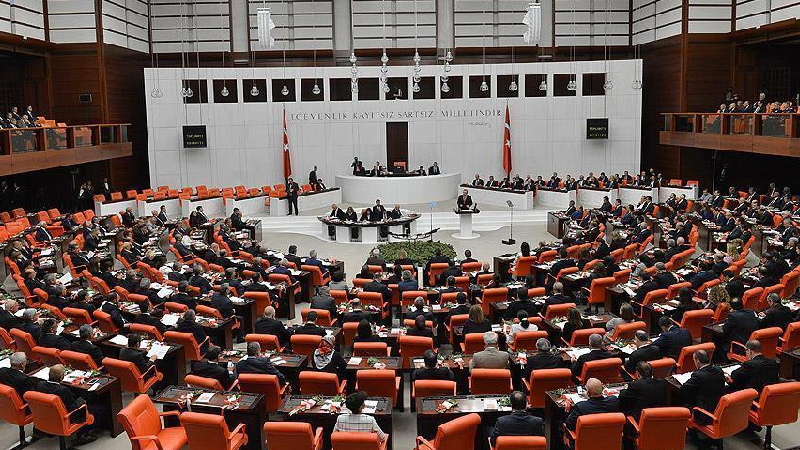Winds of Change in Turkey

In the May of 2016, Ahmet Davutoğlu, the then prime minister of Turkey announced his resignation. In the June 2015 national elections, none of the political parties were able to win a majority resulting in a hung parliament and also witnessed the parliamentary debut of the HDP, a pro-Kurdish political party. But the November 2015 snap election saw the AKP party or Davutoğlu’s party winning the majority and coming back to power. The HDP was completely deprived of their seats after rising tensions between the Turkish government and Kurdish nationalists and militants. But one agenda that remained a constant in the background was the call for a transition of the Turkish executive from a Parliamentary system to a Presidential system. How will Turkey change after this?
Before trying to understand the constitutional amendment draft that had recently been approved by a majority of the Turkish parliament, it is very important to know the main players in this game. We have the ruling conservative Justice and Development Party (Adalet ve Kalkınma Partisi/AKP), the far-right Nationalist Movement Party (Milliyetçi Hareket Partisi/MHP), the main opposition Republican People’s Party (Cumhuriyet Halk Partisi/CHP) and the pro-Kurdish Peoples’ Democratic Party (Halkların Demokratik Partisi/HDP).
The vote for the constitutional amendment is supported by the ruling AKP and the MHP in Parliament. The CHP, which is the main opposition and the HDP do not support the amendments proposed and have actually come up with their own versions of the amendment drafts. If one puts together the number of seats the AKP and MHP have in the Turkish Parliament, it was just enough for the draft to be deemed approved by the legislature, even with significant opposition. What exactly are the amendments proposed?
The seat of the Turkish President is very similar to that of the Indian President meaning it is nominal. It is the Prime Minister who is the real head of the state and along with his council of ministers practically run the state. Largely perceived as a move by the current President and a former Prime Minister himself, Recep Tayyip Erdoğan to consolidate his power and influence in Turkish affairs, the amendments propose abolishing the seat of the Prime Minister. Instead, the powers will now be with the President who will also appoint Vice Presidents and Ministers. Presidential elections will be held along with Parliamentary elections every 5 years. A President will not be allowed to run for a third term meaning he can hold office only twice.
Unlike the current system, the President now can not only continue his association with a political party but also hold party leadership and even choose candidates during the Parliamentary elections. He will now hold powers to declare emergencies and issue decrees. The President will also cease being accountable to the Parliament meaning the Parliament can request for a discussion or submit questions with reference to an action or potential policy but cannot move a no-confident vote or motion against him in case of disapproval. The impeachment process has been laid out separately. But, the President is criminally liable.
With the parliament giving its approval to this constitutional amendment, Turkey is scheduled to vote in a referendum on the 9th of April making things clearer and deciding if they want their country to undergo this drastic change. When asked ordinary Turks, they either decide to reserve their position or state they are waiting for the campaigns to shape up for them to decide on the basis of the pros and cons. Ultimately, everybody is looking at supporting a stand which would eventually contribute to a greater, stronger & mightier Turkey.
The “Evet” or Yes campaign is looking at capitalising the nationalist sentiments that hit new highs after the 15th July military coup and also the personality cult of President Erdoğan. Meanwhile, the “Hayır” or No campaign is looking at sticking to the system and ideals left behind by Atatürk or the Father of the Nation and also are looking at decentralisation of powers along with the continued presence of greater democratic ideals.
The primary reason behind Davutoğlu’s resignation was widely believed to be a need for him to grow more and more submissive under a much more dominant Erdoğan. The appointment of the current Prime Minister Binali Yıldırım was understood to be an indication that the President now wants to run the show all by himself meaning he wanted the agenda of the constitutional amendment to get cleared without the slightest opposition even from his own party. At a time when Turkey’s integrity is being held at stake with fragile borders, gradually failing accession talks with the EU, relations with the US hitting an all-time low, the growing refugee crisis and internal militancy, this amendment is supposedly focusing on replacing years of failed, weak and broken coalition governments with one strong, consolidated powerhouse. Keeping in mind the supremely crucial role Turkey plays not only in regional but also global geopolitics, it is imperative for the world to wait for the outcome of the referendum and the potential changes in the nature of this country’s functioning.





